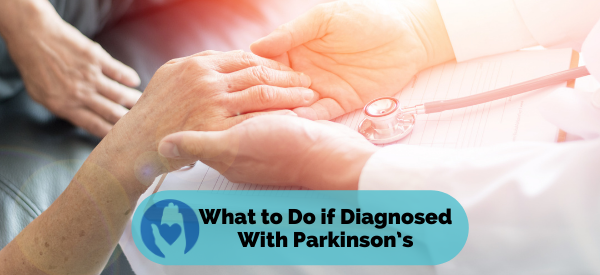After receiving a Parkinson’s diagnosis, it can be difficult to know what to do next. No matter your age or stage we’ll be discussing things that are universally worth trying out. Some strategies may work better than others, whether adjusting lifestyle, mindset, or both. Just know that there is something you can do and know that while all the advice may be overwhelming these are some basics starting points. While you may need some time for the diagnosis to sink in, do not despair or decide your fate before getting educated. There are a lot of resources to consult so don’t be afraid to take your time and know that it’s a process.
Seeing Doctors and Specialists
Seeing your doctor has likely been your first step but keep in mind that you need a medical team you can trust. Your regular doctor and your primary neurologist need to people that understand Parkinson’s Disease and understand you. Not all doctors are equal. Doctors that have more experience working with Parkinson’s Disease are more likely to be able to tailor and suggest treatment plans and medication for your better than other doctors. Furthermore, consider seeing a movement disorders specialist, especially if some symptoms persist despite current therapies. Movement disorders specialists will be on top of new treatments and advances in Parkinson’s Disease care. Diversifying your team and going the extra mile in finding a trustworthy medical team will make the difference in your quality of life. Resources such as Freedom Home Care, in home care, or personalized elder care can help navigate this area.
Activity and Engagement
Stay active or get active! Everyone’s body deteriorates physically with age, having Parkinson’s Disease should no more make you give in to that than aging does. If you become more active now, before the progression of symptoms, then it will be easier to remain active longer. Try hiking, swimming, gardening, biking, or any other form of exercise. Integrate it into your lifestyle and make them a habit. It is never too late to start something new. Activity helps build a reserve against losing physical function and Parkinson’s symptomatic progress. Think about how you can ensure mental and social engagement in your life, as these are just as important as physical activity. This can mean working a job or engaging more fully with your social circle.
Outward Attitude and Inward Reality
Whether you’ve heard this or not, try to be honest. This doesn’t mean you need to go knocking on people’s doors to tell them about your diagnosis, but it does mean that you shouldn’t hide it from family and close friends. For your long-term well-being make openness and honesty a habit. Family and friends are an important part of your care so it’s important that they know the reality and extent of your diagnosis.
Track Your Symptoms and Consider Research
Take note about how your body reacts to medications and treatments. In the end it is up to you to communicate these changes to your medical team. Family, friends, and certified caregivers can help with this task. Participating in research is another way to directly help yourself and hopefully others as more and more is understood about Parkinson’s disease. Find a research study that may suit you via the Michael J. Fox Foundation or ClinicalTrials.gov.
More Information
Ask your doctor or certified caregiver for information you can take home and read, find other people with Parkinson’s in your community or online to talk to, and browse sites like the National Parkinson Foundation and the Michael J. Fox Foundation for Parkinson’s Research.




